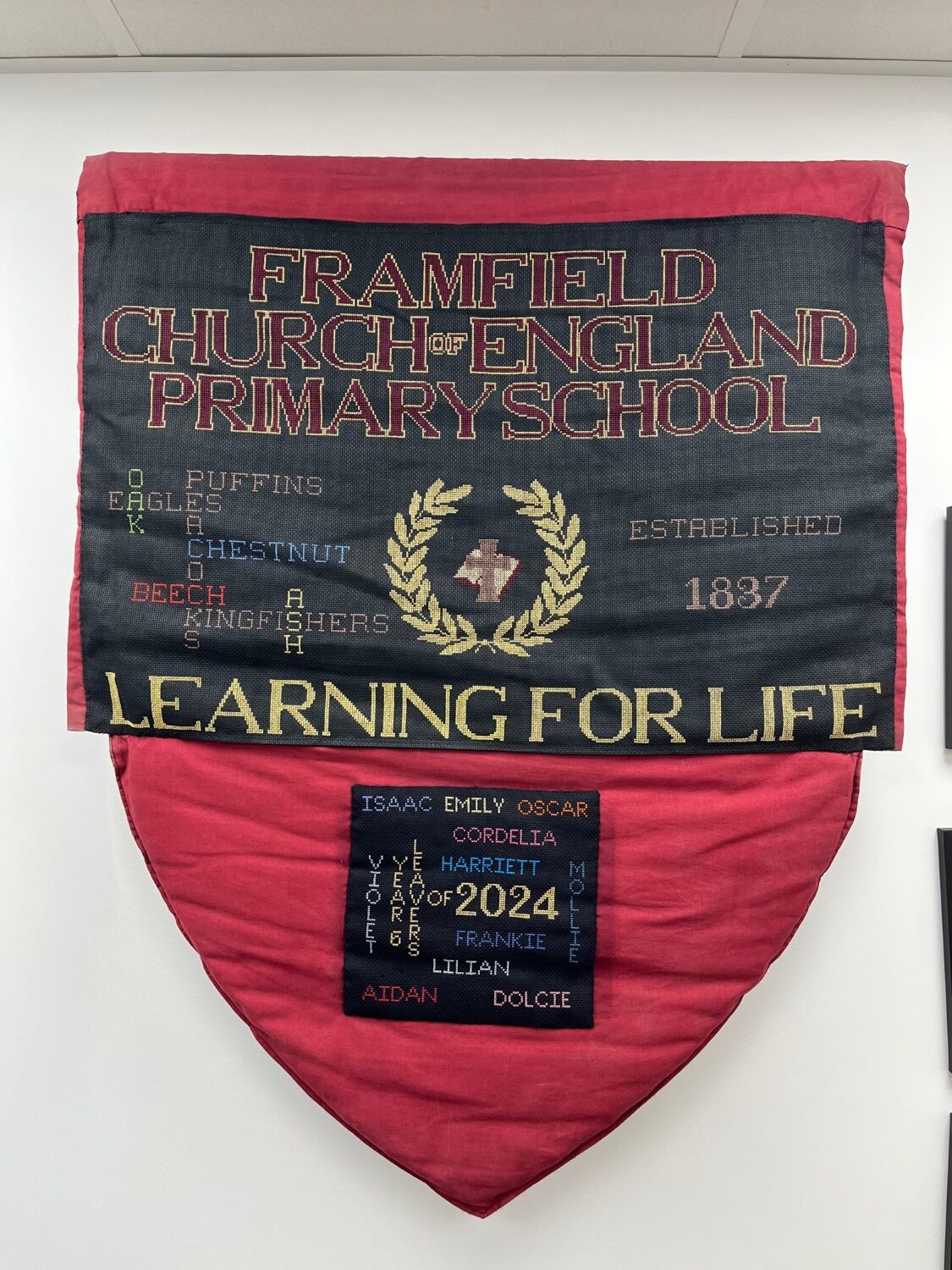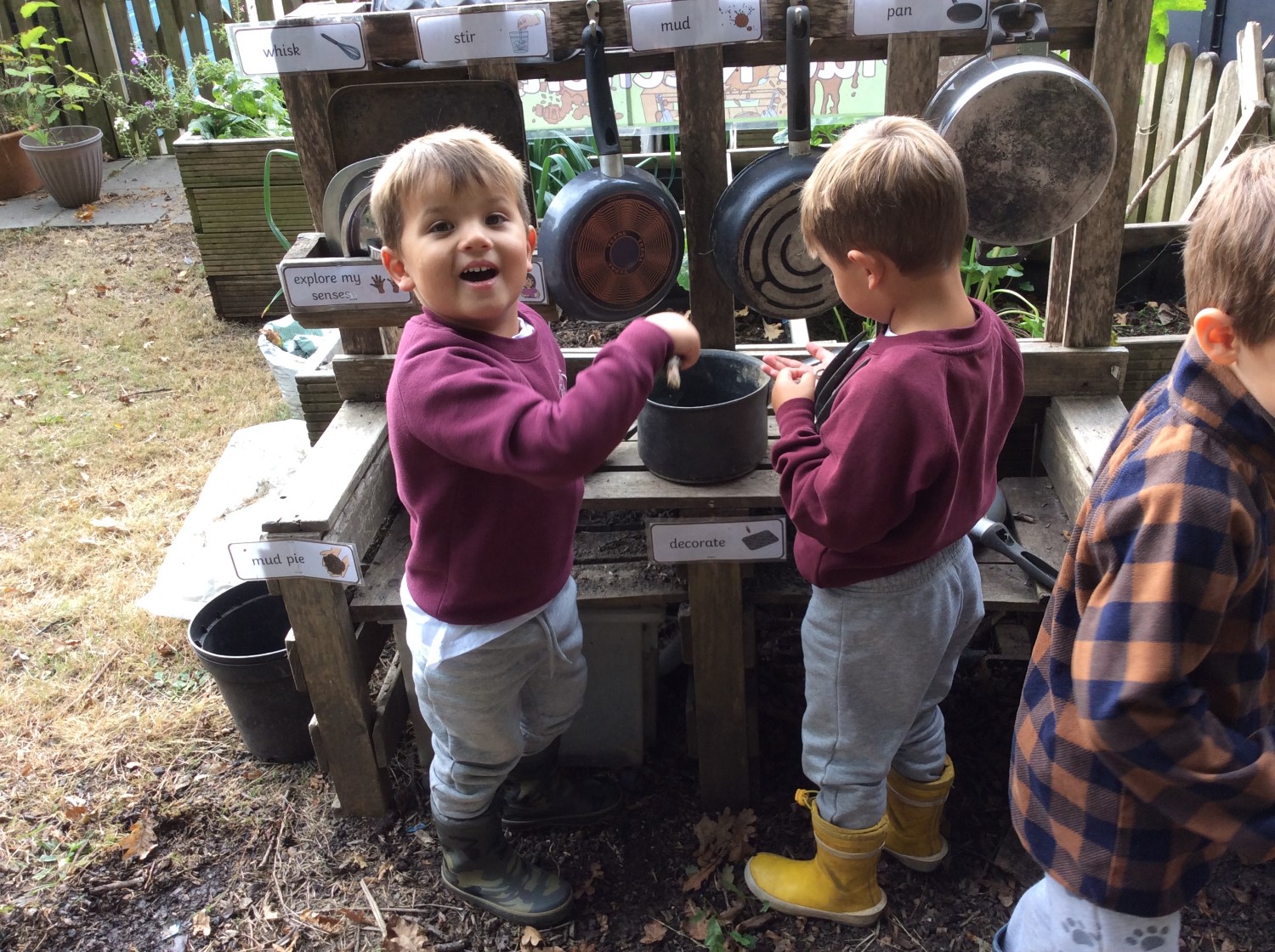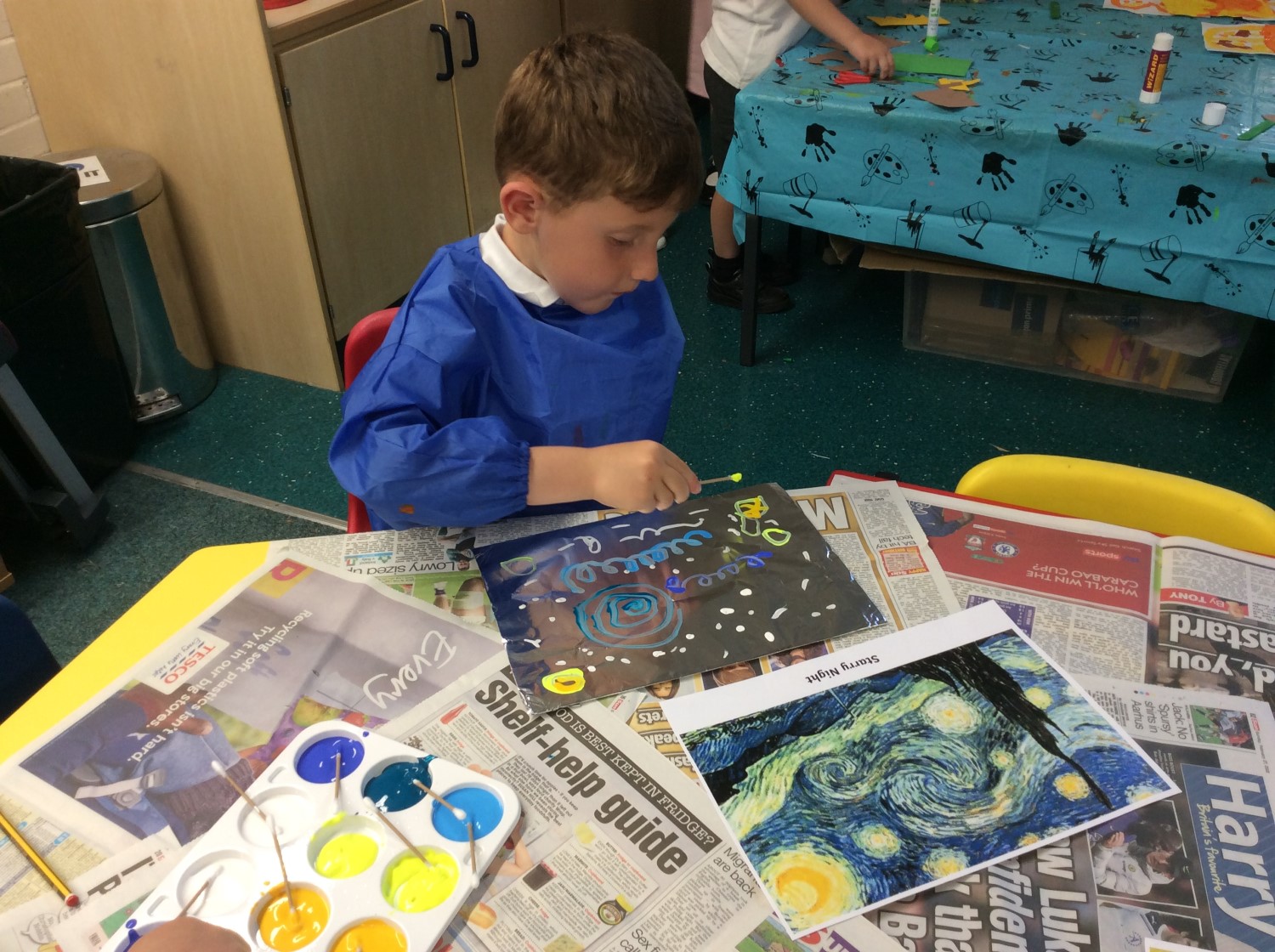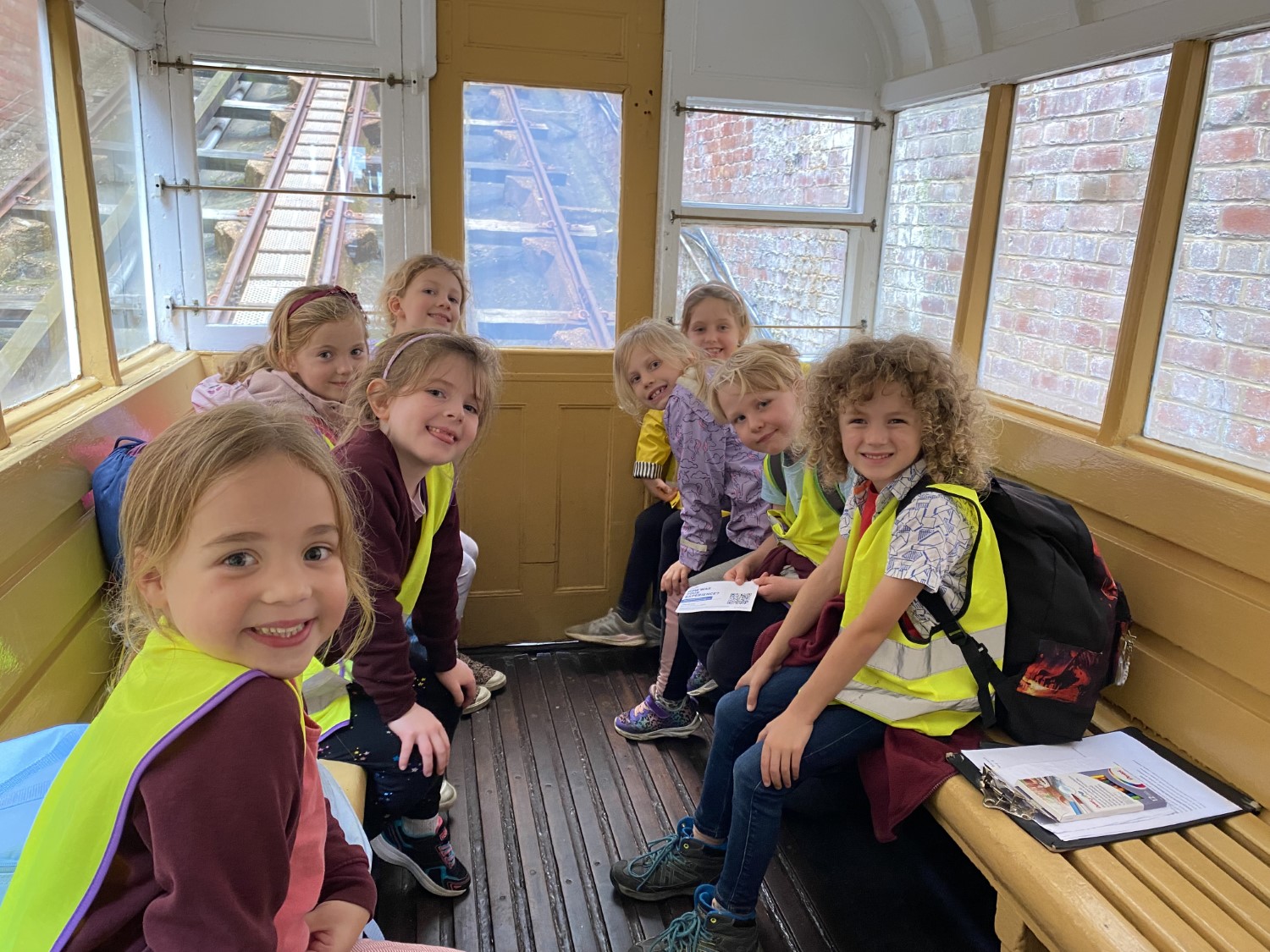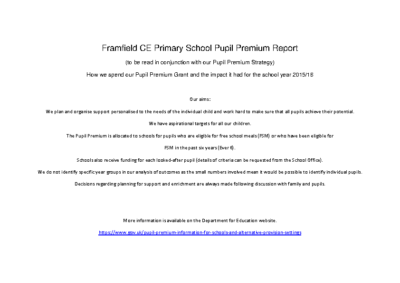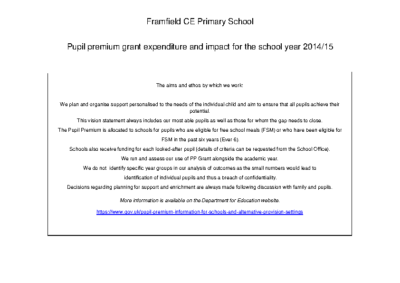The Pupil Premium is funding provided to schools which is additional to main school funding. It is allocated according to the number of pupils on-roll who are eligible for free school meals (FSM), a smaller amount allocated according to the number of children of service families, and an allocation for each pupil who has been ‘Looked After’ (in care) for 6 months or more. In 2012, funding was extended to include pupils who have been eligible for free school meals within the past 6 years.
It is for schools to decide how the Pupil Premium is spent, as they are best placed to assess what additional provision should be made for the individual pupils. However, schools are accountable for how they have use this additional funding to support pupils from low-income families. From September 2012, schools have had to publish this information on the school website. Please see below for information regarding how the pupil premium was spent in the last financial year and the impact of this funding on pupils achievement at school. The Department of Education has created a document Pupil Premium - what you need to know which expands on the purpose of the pupil premium and the key facts.
At Framfield CEP School we have high aspirations for all our children and believe that no child should be left behind. We aim to develop a thirst for knowledge, a commitment to learning and to give every child in our school every chance to realise their potential.
We are a small rural school of 97 pupils and for the year 2016-17 10% of our pupils are in receipt of the Pupil Premium Grant.
Although our pupil premium funding is not a major proportion of our budget, we are determined to ensure that it is used to its best effect. With this in mind we research the best ways to use this grant and have generally focused on interventions which have been shown to have particular impact e.g. work of the Sutton Trust.
Barriers to Learning
When making decisions about using the grant we look at common barriers to learning such as support at home, language and communication skills, confidence, attendance and punctuality issues. Complex family situations often prevent families from flourishing and can present as another significant barrier to learning.
Our main objective in deciding how to use the Pupil Premium Grant is to ensure that the gap between groups of pupils is narrowed and we strive to ensure that targeted interventions help eliminate barriers to learning and progress.
Key Principles
Building belief and a “can do” attitude
- Staff believe that all children can succeed.
- We adopt a ‘no excuses’ attitude to underperformance.
- The school community works hard to develop resilience and perseverance in all our children.
Data Analysis
- All staff are involved in data analysis and plans are put in place as a result of that analysis.
- We use research to support us in planning strategies that will be the most effective in improving outcomes for our pupils e.g. (Sutton Trust Toolkit, EET).
Pupil Identification
- All staff are aware of who the PPG children and other vulnerable groups are.
- All Pupil Premium children benefit from the grant, not only those who are underperforming.
- Individual children's needs are considered so we ensure that we provide support for pupils who could do even better.
Day to Day teaching
- We set high expectations.
- Staff follow a robust system of feedback and assessment.
- We aim to maximise teaching time by improving attendance and punctuality.
- We provide early intervention.
- We provide a rich variety of after-school clubs.
How do we spend our Pupil Premium Grant?
- The school has an Inclusion team who also have responsibility for overseeing the progress and well-being of pupils deemed to be vulnerable. This includes Looked After Children (LAC), those from low income families receiving free school meals and pupils from service families as well as more able pupils. Our SENCO works with senior leadership in closely tracking all pupils thought to be vulnerable and planning and monitoring appropriate interventions..
- Funding for emotional support and building confidence and self-esteem through counselling and play therapy (Talk Space and Fegans).
- Funding for enrichment activities. E.g. music lessons/subsidised trips for individual children. Our school values life experiences and our staff and parents appreciate how much the children gain from extra-curricular activities etc.
- Additional individual or small group tuition programmes tailored individually for those children who need a boost to their learning in order to reach their potential. eg small group reading, writing or maths tuition.
- TA supportfor 1:1 work or small groups in maths and literacy.
- Release for teachersto work on individual feedback for improvement and developing core skills of resilience and perseverance.
Who is it spent on?
- Pupil Premium (PP) pupils who are under-achieving.
- PP and other vulnerable group pupils who are in danger of underachieving.
- PP and other vulnerable group pupils for whom low attendance is an issue.
- PP pupils who are achieving well and need to be extended and challenged to reach their true potential.
Medium Term Analysis of Impact
- The impact of Pupil Premium provision is reviewed termly.
- Analysis of each child's progress and achievement is undertaken 6 times a year using our school's tracking system via progress and provision mapping meetings which measure impact and outcomes with both teachers, Inclusion team and Senior Leadership Team member.
Details of PPG income, expenditure and impact are included on this website for academic years separately from this statement. As a small school with small numbers, details which would easily identify specific pupils have not been included in this data.
Our PPG Report and Strategy reviewed annually. The next review will be in September 2017.
